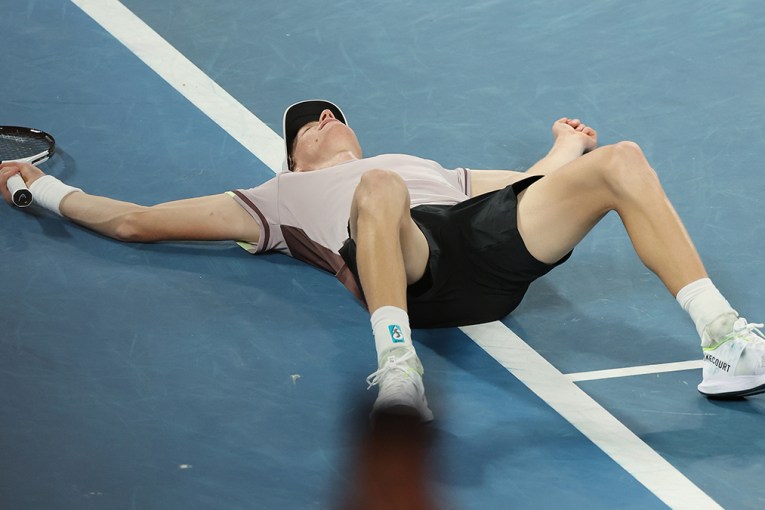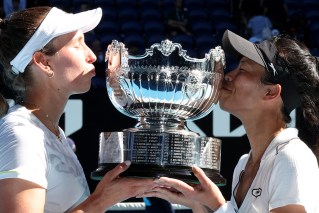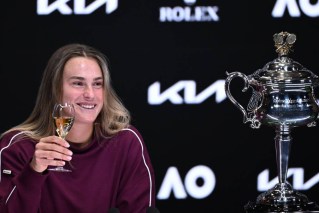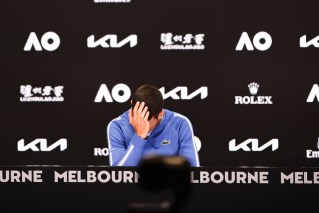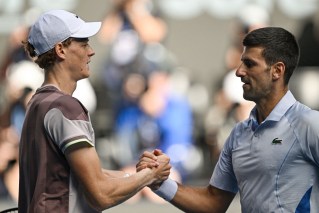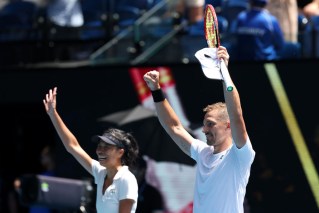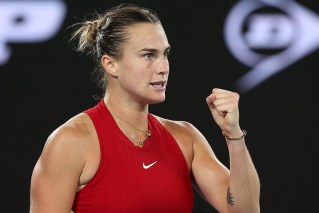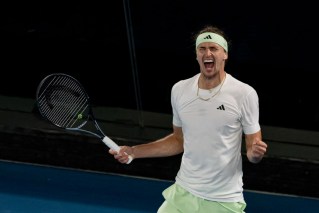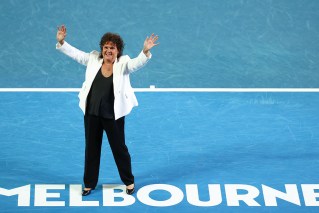Australian Open 2021: Why the show must go on despite the controversy

Pages full of protest letters to editors, social media and talkback tub-thumpers and loud general bellyaching about whether the Australian Open should be happening as rescheduled does not change one basic fact.
It will.
Not in its now-traditional January school holiday dates, of course, but nor is it being deferred, Formula One Grand Prix style, until the lower-risk, post-vaccination end of what is still a crazily-uncertain and precarious 2021. February 8-21. Ink it in.
Not because, as Victorian Premier Daniel Andrews suggests, a one-year hiatus in these extraordinary circumstances would somehow imperil the grand slam credentials of a wildly-successful event whose wicked Asia-Pacific rivals are supposedly lurking, waiting to snatch it away. (What nonsense. The four majors have held that status for almost a century and, as Wimbledon demonstrated, it will take more than one pandemic pause for that to change).

All eyes are on Victoria as Australian Open tennis players bemoan mandatory quarantine.
Even a spectator-lite version of one of the country’s biggest international events is – like the just-finished Test series against cricket heavyweight India – considered too valuable not to hold.
Yet nor is it a surprise how many locals, whether tennis fans or not, disagree.
As a journalist who has covered 32 of the 33 Opens played at what started life as Flinders Park in 1988, and one who can remember the furore over the loss of prime parkland to house the complex in what was truly a slam-saving move back then, the way the tennis issue has polarised the Victorian community in recent months has been fascinating.
At a barbecue last weekend, for example, a Torquay-based friend who attends Melbourne Park annually with a group of friends declared herself uncomfortable at the thought of attending this edition, despite holding a ticket purchased, pre-Christmas. on her behalf.
Agreeing that, now that Tennis Australia already has her money, it’s doubtful what a boycott would achieve, it was explained as being more about the clear injustice of allowing all these international players and their entourages – many potential virus-carriers from global hotspots – into a country where so many citizens have been unable to return, and even Victorians have been stymied at the border.
This is both typical, and understandable, despite the 1200-strong TA-funded influx not taking any space in the cap limiting overseas arrivals.
Yet also true is the perception of a double standard that is simultaneously threatening everything achieved through great local sacrifice and suffering.

Novak Djokovic’s list of ‘demands’ have been widely ridiculed. Photo: Getty
Not that eight-time champion Novak Djokovic is helping.
His list of “demands” – ranging from the reasonable to the ridiculous – was transparently political, given the world No.1 is one of the leaders of the breakaway Professional Tennis Players Association, formed last year as a rival to the ATP.
Even when issued on behalf of the less fortunate, from the relative freedom of Adelaide, it came across as woefully entitled and out of touch. Especially from an anti-vaxxer whose Adria Tour exhibition became a virus super-spreader before ending ignominiously in June.
Lower down the food chain are those with the misfortune to have travelled on one of the three infected charter flights.
A tone-deaf minority of whingers is now decrying an inability to practise, the temperature/quality of the free food, and even – from Bernard Tomic’s partner – the lack of hairdressing services inside quarantine accommodation patrolled by 24-hour guards.
We say: If you didn’t know the rules and the situation before you came, you should have.
Djokovic is a tool. I don’t mind Bernie but his Mrs obviously has no perspective, ridiculous scenes 🤦🏽♂️ https://t.co/MMgeriH2GJ
— Nicholas Kyrgios (@NickKyrgios) January 18, 2021
Thankfully, the majority of the 72 athletes have either read the room (however smal), and/or accepted this unwanted lockdown fate and improvised – using exercise bikes as weights, beds as hitting partners and hallways as running tracks. Inside a trio of four or five-star hotels in inner Melbourne has been some gold-star creativity.
Grand slam preparation 😅 pic.twitter.com/ALvc4EugN6
— Yulia Putintseva (@PutintsevaYulia) January 17, 2021
Clearly, though, some players’ preparations will be superior to others, no matter how strong the pre-season foundations.
While, for injury and acclimatisation reasons, there seems some merit in the idea of reducing men’s singles matches to best of three sets – even if only for the first few rounds – tournament director Craig Tiley is unmoved.

Craig Tiley has rejected the idea of men’s three-set matches. Photo: AAP
There will still be a full week to practise before it all begins and, just like the pandemic-affected 2020 versions of the US and French Opens, it will be a tournament big on compromises and caveats, and thus impossible to compare with any of the 108 Australian championships that have gone before.
Of the various bottom lines, the financial kind will be deeply in the red, wiping out TA’s $80 million in reserves, plus many tens of millions more.
But the fact the tournament is proceeding ensures that even the first-round losers – most of whom had their income slashed in 2020 – depart with a minimum $100,000, while Channel Nine’s already-discounted broadcast rights fee is safely banked.
Having come this far, and spent this much, the organisers will find a way, backed by a state government that cannot now afford any other outcome. The show will go on.
And for every misgiving and objection, if strict biosecurity protocols continue to be enforced and the COVID threat contained, should home-grown women’s top seed Ash Barty be planting her unmasked lips on the Daphne Akhurst Memorial Cup on February 20, expect any lingering complaints to be drowned out by applause.
